What is Human Resources (HR)?
HR, Personnel, talent, manpower, POPS – today we’re taking a look at what human resources really means and what the HR professional or team is responsible for. Having a HR team or professional isn’t a legal requirement for a company, and many small to medium enterprises get by perfectly well without them. We take a look at when, and why a business is likely to decide to take on a dedicated HR professional.
What is human resources?
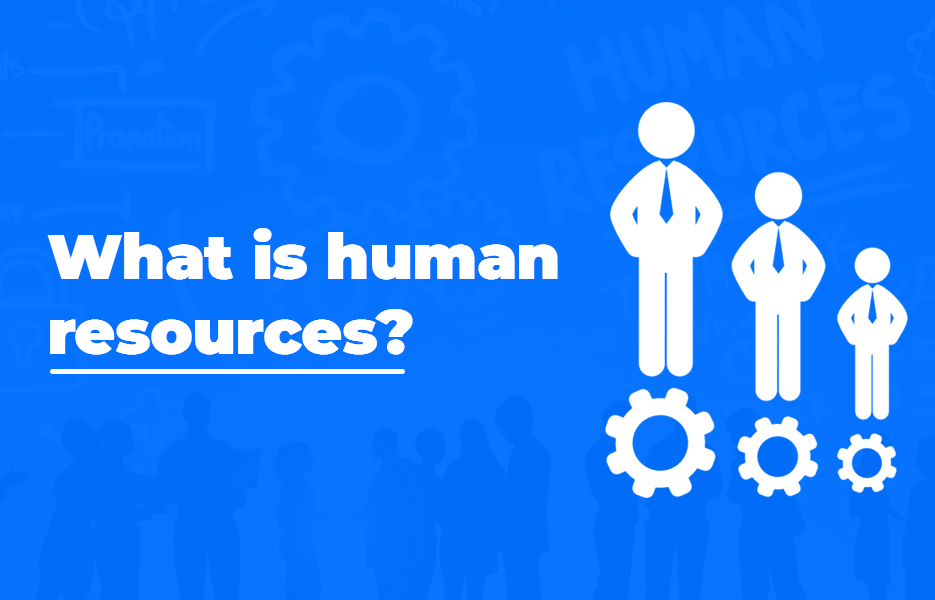
Human resources is the department within a company that is responsible for recruiting and training staff. They’re also tasked with creating employee benefit programmes, and will work closely with the accounts team to ensure payroll is correctly administered.
Not all businesses refer to their human resources team as HR though:
Google, Slack and Uber refer to their HR teams as People Operations, or ‘POPS’. We love Google’s motto for their POPS team: “Find them, grow them, and keep them” – what a way to show you’re investing in your employees!
Facebook calls the team that manage their HR goals ‘People@’ – and their goals are pretty direct too: ‘Hire the best people, foster continuous personal growth and enrich the overall Facebook experience’.
Airbnb refer to their HR team as the ‘Employee Experience’ team.
Starbucks are moving towards referring to their HR team as ‘Partner Resources’ – encouraging staff to feel like they are partners in the business rather than mere employees.
Some businesses are moving towards calling their HR team ‘Employee Success’. Rather than emphasising the negative in what the team might need to handle, they’re placing the goal of the team directly as helping to achieve something positive.
Whatever name a business chooses for their HR team, there are a number of tasks that the HR professional, or the team will be likely to be responsible for.
Human resources responsibilities
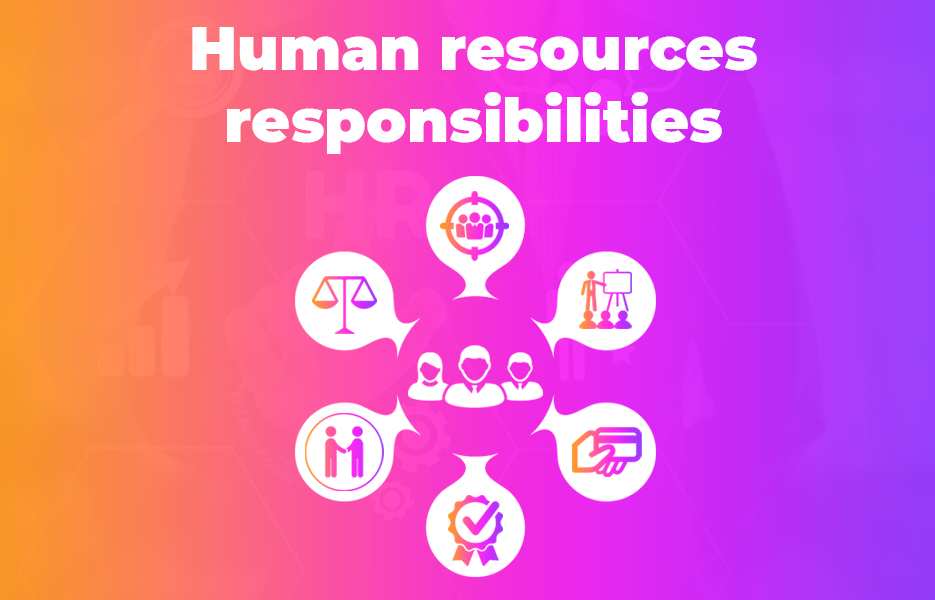
Depending on the size of the business and the number of employees, different HR team members may take responsibility for different roles of the HR function.
Recruitment
Finding new staff that are the right fit the business takes time. Posting vacancies and creating job descriptions is just the first part – there’s also conducting interviews to take care of, which can take up a huge amount of time. Recruitment tasks also include developing employee handbooks, policies and procedures such as induction schedules for new team members.
Employee training
Training schedules, whether they are handled internally or they’re created in conjunction with external training agencies are also managed by HR staff. Establishing the training requirements of employees, and managing training budgets so they are allocated appropriately is also a huge part of HR activity.
Pay and recompense
Payroll can be tricky, especially where there are times that staff have provisions such as parental leave, or where overtime is worked. Ensuring pay is made on time and is accurate is essential for happy employees!
Other concerns include ensuring pension contributions and bonuses are made appropriately, and that any expenses are paid accordingly.
Employee benefits
Managing employee annual leave allowance is a key part of human resources functions – as well as tracking employee absence. In addition, there may be a need to manage other incentives such as health insurance, fitness or wellness programmes.
Employee relationships
Managing relationships between team members, whether between the same pay grades or between managers and the employees they manage can be hard. HR staff can help resolve minor disputes, and they may work as a liaison between the organisation and trade unions where it is necessary or appropriate.
Legal responsibilities and compliance
This is the big one – knowing the current employment law, disseminating new information between the relevant teams or departments, and ensuring any legally required changes are implemented in a timely manner is a huge part of the HR team’s responsibility.
They will also be in charge of investigating any cases of harassment, discrimination or gross misconduct.
When does a company need a specific human resources person?
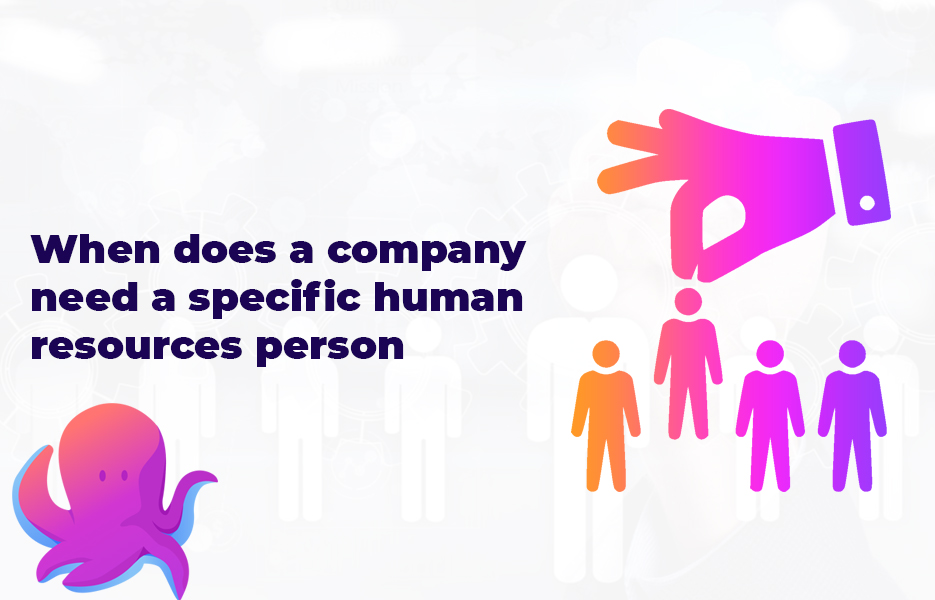
When you’re a sole trader, you’re generally going to be able to take care of your HR requirements yourself. As the business grows, what is the right time to take on a HR professional, or even a team? Since every business is different, with a range of requirements, there’s no right or wrong answer to this question, but these are some of the reasons that a company will need a dedicated HR person.
Don’t forget though, you may not need a full time HR professional. You may decide to engage with a HR assistant or generalist who can help you out on a freelance basis as your business grows, or taking on a permanent, but part time HR professional for a number of days a week. Both solutions may fit your company, so be sure to carry out appropriate research before making a decision.
Rapid expansion
Your business is only as successful as your employees. If you’re needing to hire staff more quickly, and it is taking up too much time to conduct recruitment activities, it may be time to get an HR person, so that you can be sure that you’re getting the best staff that are the right fit for the job. Your HR professional will ensure that your job descriptions and person specifications are created accurately, which will help to ensure you attract new team members with the right qualifications and experience. They will also be able to conduct research and advise about pay scales for each role in the sector, so that you’re getting the best talent.
HR professionals will also be able to review employee performance on a regular basis for you, which can help you identify where there are training needs or personal needs of the employee, so you can support their growth and retain them in the company, rather than needing to replace them.
The business can’t stay abreast of employment law
Employment law changes incredibly quickly. In recent years, the UK government has introduced pension auto-enrolment, changes to childcare and parental leave, and most recently, arrangements for furloughing staff during a global pandemic. Keeping on top of those changes can be a full time job in and of itself, which may leave you at risk of missing changes if you aren’t careful. When you’re at the point that time doing your main job (and those of your team members) is being taken up by employment law changes, it may be time to bring in a dedicated professional.
Employee disputes are on the up
The bigger the number in your team, the more likely it is that you will encounter issues. Claims of harassment or discrimination, pay disputes or claims of unfair treatment are all part and parcel of a growing company, no matter how well you manage your team. These types of issues have to be handled carefully, otherwise there is a strong chance of legal action, which could be costly, as well as potentially causing long-term reputational damage to the company.
HR managers will help to handle such conflicts and will know the legal standpoints for such issues, so will be able to advise the management team of the right course of action in such events.
Too much time is being spend on HR issues
A lot of small and medium sized businesses delay employing a dedicated HR manager because they don’t want to pay the salary that a qualified HR professional commands. However, that means company managers end up needing to spend time on HR issues – which means they are less able to spend time on their own jobs. When you consider how much return on investment that gives you, and how much more business the manager could generate in that time, it is essential to consider when the company should take on a dedicated HR manager.
What is the difference between HR and Personnel?
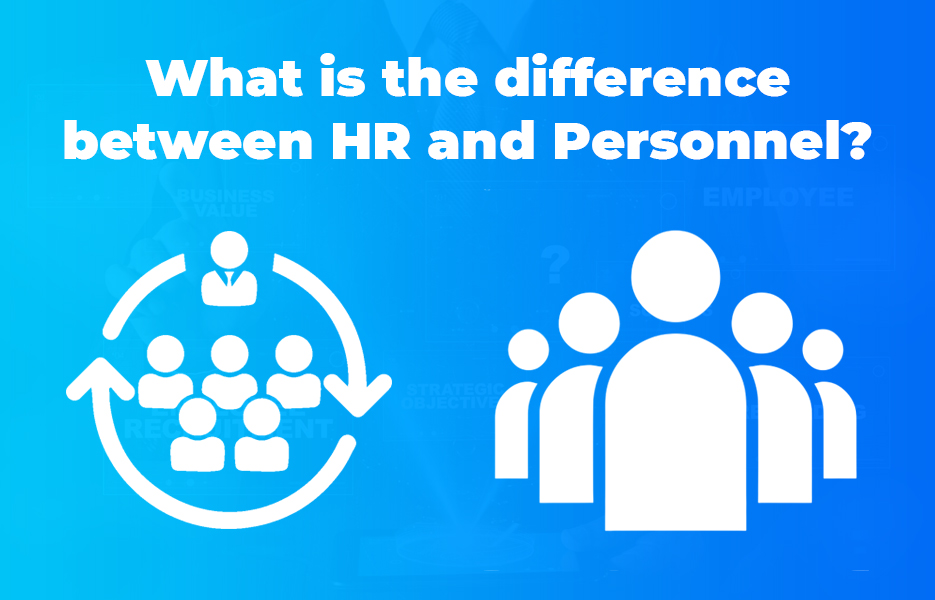
Generally, human resources is the label applied to the tools used by the HR department, whereas personnel applies to the management of the people. It is also suggested that the duties of personnel management are reactive, whereas the duties of human resources is proactive.
Personnel teams are traditionally likely to be more reactive – so, they may deal with issues as they have arisen, such as when a complaint about discrimination occurs.
Human resources team members will proactively prevent issues arising. They’re developing contracts, programmes, policies and procedures to ensure that employees are aware of diversity, security, and leadership issues, as well as any issues that apply to the company specifically because of the industry they are operating in.
Generally in the UK, HR teams encompass both reactive and proactive aspects of dealing with employees, aiming to ensure a safe and happy working environment as well as dealing with the aftermath of when an issue has occurred.
There really isn’t a right or a wrong time to employ a HR professional, although in the beginning when it is just you, and perhaps one or two other staff, employing a person to carry out HR duties may be a little more than you need. But as your business scales, and you start to have more employees, it is essential that you protect both yourself and your employees in case something goes wrong. Having a HR professional taking care of the legal aspects of employing staff is a wise move, and can ensure that your team gets the right type of staff on board while helping to the team as a whole ticking along smoothly.

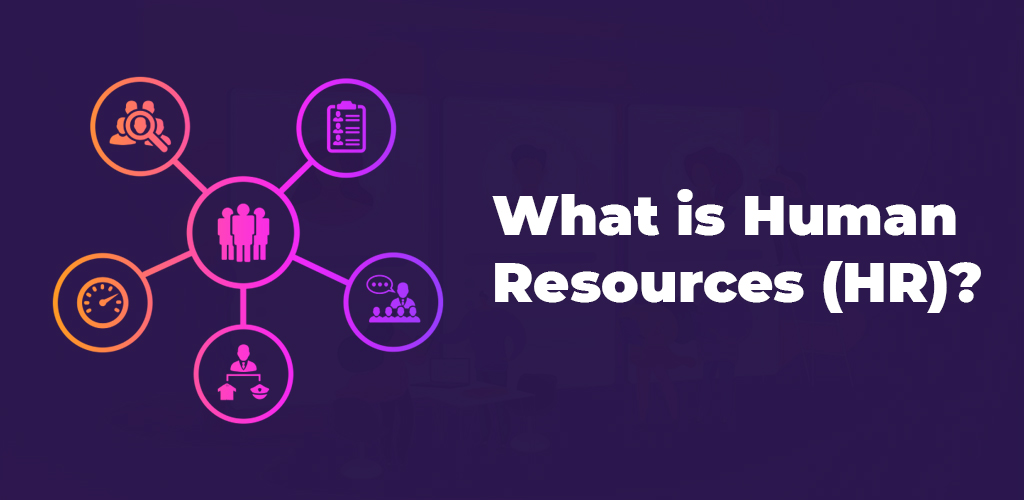






DropShip products from verified suppliers to diversify your inventory and scale your eCommerce business